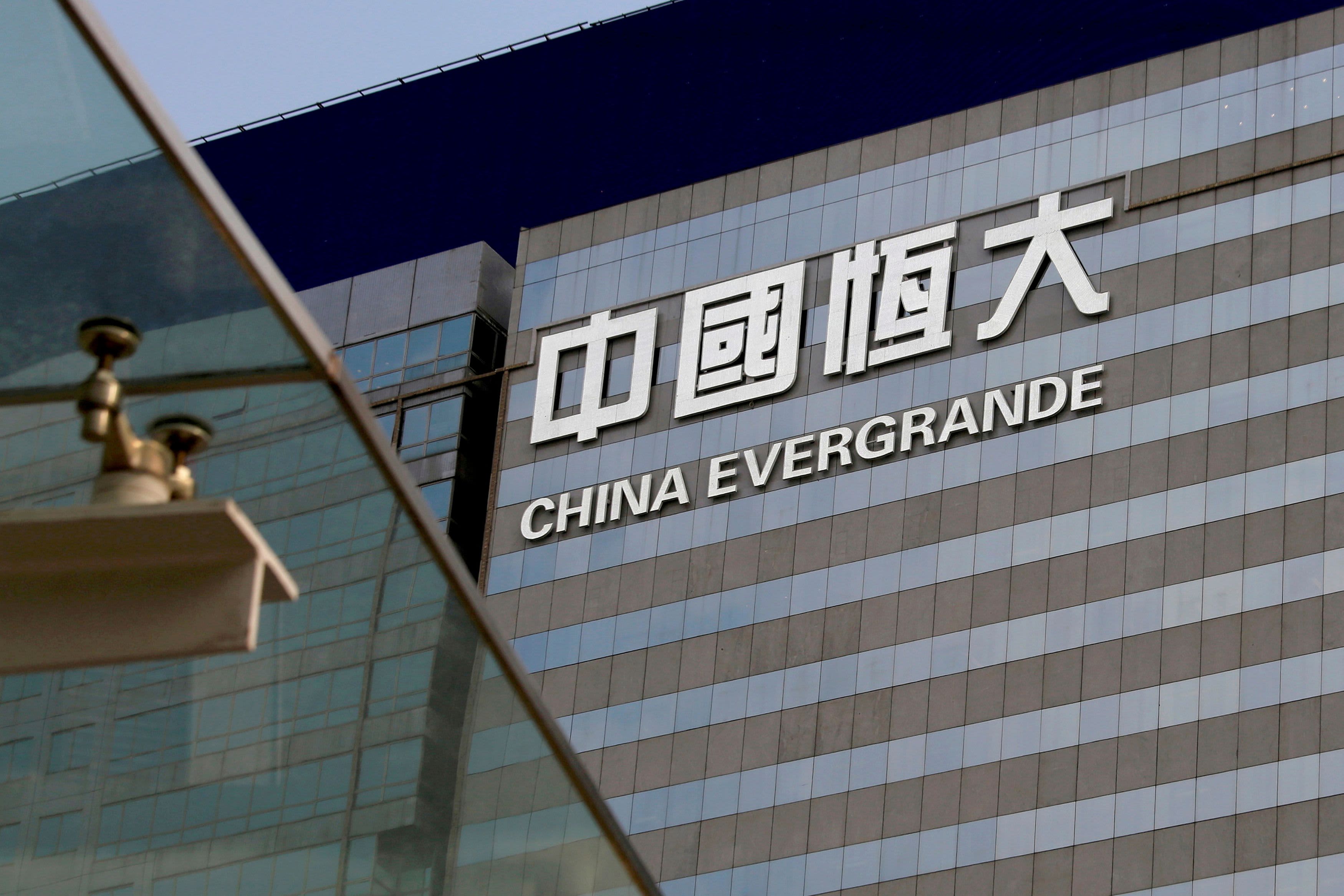BEIJING — Indebted property developer China Evergrande defaulted this week with hardly a ripple in markets as most institutions remained silent.
Late Thursday, Fitch Ratings said Evergrande had not confirmed payment of its latest debt obligation, triggering a default. The developer’s shares traded 1% lower Friday. The Shanghai composite dropped 0.2%.
Evergrande’s problems came to light over the summer amid tight regulation on real estate as investors worried about spillover to China’s economy. The company has a total $300 billion in liabilities, with $19 billion in offshore U.S. dollar-denominated bonds — the most of any Chinese developer.
Until Monday, Evergrande had made eleventh-hour interest payments to stay afloat.
“We should have been calling this a technical default for a long time already, but nobody dared,” Alicia Garcia-Herrero, Natixis’ chief economist for Asia-Pacific, said Friday.
“China is not making it clear because there’s no pressure to make it clear,” she said. “Ratings [agencies] should be pushing. Some investors did push. Nobody wants to label this because they don’t want to bear the consequences. Everybody’s trying to increase what they can get out of it.”
Not putting the official “default” label on Evergrande allows the company to restructure its debt at a lower cost, she said.
S&P Global Ratings did not have a statement as of Friday afternoon, and referred CNBC to its report Tuesday that said “default looks inevitable for Evergrande.” Moody’s, another ratings agency, did not respond to a request for comment.
Evergrande did not respond to a CNBC request for comment.
Fitch’s proclamation of default is based on the firm’s assumption that two interest payments were not paid before the grace period ended Monday, the ratings agency said. It downgraded Evergrande’s rating to “restricted default,” which means the developer has not yet ceased operations, or even begun formal procedures such as filing for bankruptcy.
No other mentions of ‘default’
The overall silence around Evergrande’s default comes as Chinese authorities have made public statements in the last week about efforts to manage the developer’s situation.
On Dec. 3, Hong Kong-listed Evergrande warned in a filing it could not guarantee it could meet its financial obligations and planned to “actively engage with offshore creditors” about debt restructuring. The company said it received a demand from creditors to pay about $260 million.
Later that day, the local government in Guangdong province, where the developer is headquartered, said it met with Evergrande founder Xu Jiayin. The province added it sent a working group to the company for supervising risk management.
People’s Bank of China head Yi Gang said in a speech Thursday that Evergrande’s situation is a “market event,” to be handled according to market principles and law.
“Our view on the Evergrande situation is that ultimately, that’s an extremely healthy development, because there needs to be a … [worked-out] precedent for companies to restructure their liabilities for it to be a truly functioning credit market,” Jason Brady, president and CEO of Thornburg Investment Management, said on a media call Wednesday.
Real estate is closely watched since it and related industries account for about a quarter of China’s economy, according to Moody’s.
What’s more important for China’s economy is Evergrande’s ability to complete apartments that it’s already sold to consumers, Natixis’ Garcia-Herrero said. She expects that with Beijing’s help, there will be a long, drawn-out impact on growth rather than a sharp shock from property developers’ problems.
On the side of financial markets, she said spillover is limited because Evergrande’s debt is mostly held by “high net worth individuals, [who] are holding Evergrande to the maturity, to the restructuring point.”
